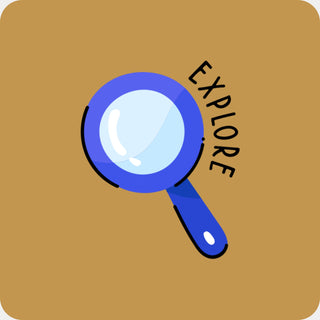Introduction
In the ever-evolving world of career counseling, guiding individuals on their professional journeys is not just about finding a job; it's about helping them discover their true passions and strengths. Career counselors play a pivotal role in assisting clients in their pursuit of meaningful and fulfilling careers. One of the key elements of effective career counseling is facilitating self-discovery—the process by which individuals identify their interests, passions, and strengths. In this comprehensive guide, we will delve into the importance of self-discovery in career counseling, explore strategies to help clients uncover their inner potential, and provide valuable insights for career counselors looking to enhance their skills in this critical area.
The Significance of Self-Discovery in Career Counseling
Self-discovery lies at the heart of career counseling. It is the process by which individuals gain insight into who they are, what they are passionate about, and what unique strengths they possess. Here's why self-discovery is so vital in the career counseling process:
-
Alignment with Passions: When individuals align their careers with their passions and interests, they are more likely to find fulfillment and satisfaction in their work.
-
Harnessing Strengths: Recognizing and leveraging one's strengths allows individuals to excel in their chosen careers, contributing to personal and professional success.
-
Informed Decision-Making: Self-discovery provides individuals with a solid foundation for making informed career decisions that align with their values and goals.
-
Resilience and Adaptability: Knowing one's strengths and passions fosters resilience and adaptability, enabling individuals to navigate career challenges with confidence.
-
Enhanced Motivation: When individuals are engaged in work that resonates with them, their motivation and commitment tend to be higher.
Strategies to Facilitate Self-Discovery in Career Counseling
As a career counselor, your role is to guide and support clients as they embark on their journey of self-discovery. Here are effective strategies to help clients identify their passions and strengths:
-
Self-Assessment Tools: Utilize self-assessment tools and inventories, such as personality assessments, interest surveys, and skills assessments. These tools provide clients with structured insights into their preferences and aptitudes.
-
Reflective Exercises: Encourage clients to engage in reflective exercises, such as journaling or self-reflection prompts. These activities promote introspection and self-awareness.
-
Strengths-Based Approach: Adopt a strengths-based approach by helping clients identify their unique strengths and talents. Tools like the CliftonStrengths assessment can be invaluable in this process.
-
Exploration Activities: Encourage clients to explore new hobbies, volunteer opportunities, or short-term projects related to their interests. Practical experiences often reveal hidden passions.
-
Values Clarification: Assist clients in clarifying their core values and principles. Understanding what truly matters to them can guide career choices that align with their values.
-
Career Storytelling: Invite clients to share their career narratives. By recounting their past experiences and achievements, clients may uncover patterns and themes that point toward their passions and strengths.
-
Networking and Informational Interviews: Encourage clients to network with professionals in their desired fields. Informational interviews provide firsthand insights and help clients gauge their level of interest.
-
Mindfulness and Self-Exploration: Introduce mindfulness techniques and meditation to help clients connect with their inner selves. Mindfulness can enhance self-awareness and self-discovery.
-
Visualization Exercises: Guide clients through visualization exercises that allow them to envision their ideal careers and life paths. Visualization can motivate and inspire action.
The Role of the Career Counselor in Self-Discovery
As a career counselor, your role in facilitating self-discovery is multi-faceted:
-
Create a Safe Space: Foster a non-judgmental and supportive environment where clients feel comfortable sharing their thoughts, doubts, and aspirations.
-
Active Listening: Practice active listening to truly understand and empathize with your clients' stories and concerns. Offer feedback that reflects your understanding and encourages further exploration.
-
Ask Powerful Questions: Use open-ended questions that encourage clients to reflect deeply. Questions like, "What activities bring you joy?" or "What accomplishments are you most proud of?" can elicit valuable insights.
-
Provide Guidance: Offer guidance and resources to help clients navigate their self-discovery journey. Recommend books, articles, workshops, and other tools that align with their interests.
-
Challenge Limiting Beliefs: Help clients challenge and reframe limiting beliefs or self-doubt that may hinder their self-discovery process.
-
Celebrate Achievements: Acknowledge and celebrate clients' self-discovery milestones, no matter how small. Positive reinforcement boosts their confidence.
Conclusion
Self-discovery is a transformative journey that leads individuals to a deeper understanding of themselves, their passions, and their strengths. As a career counselor, you play a pivotal role in guiding clients on this path of self-exploration, ultimately helping them make informed career decisions and find fulfillment in their professional lives.
By incorporating self-discovery strategies into your career counseling practice and fostering an environment of trust and support, you empower your clients to embark on a journey of personal growth and professional success. The impact of self-discovery extends far beyond career choices; it lays the foundation for a more meaningful and purposeful life.



























